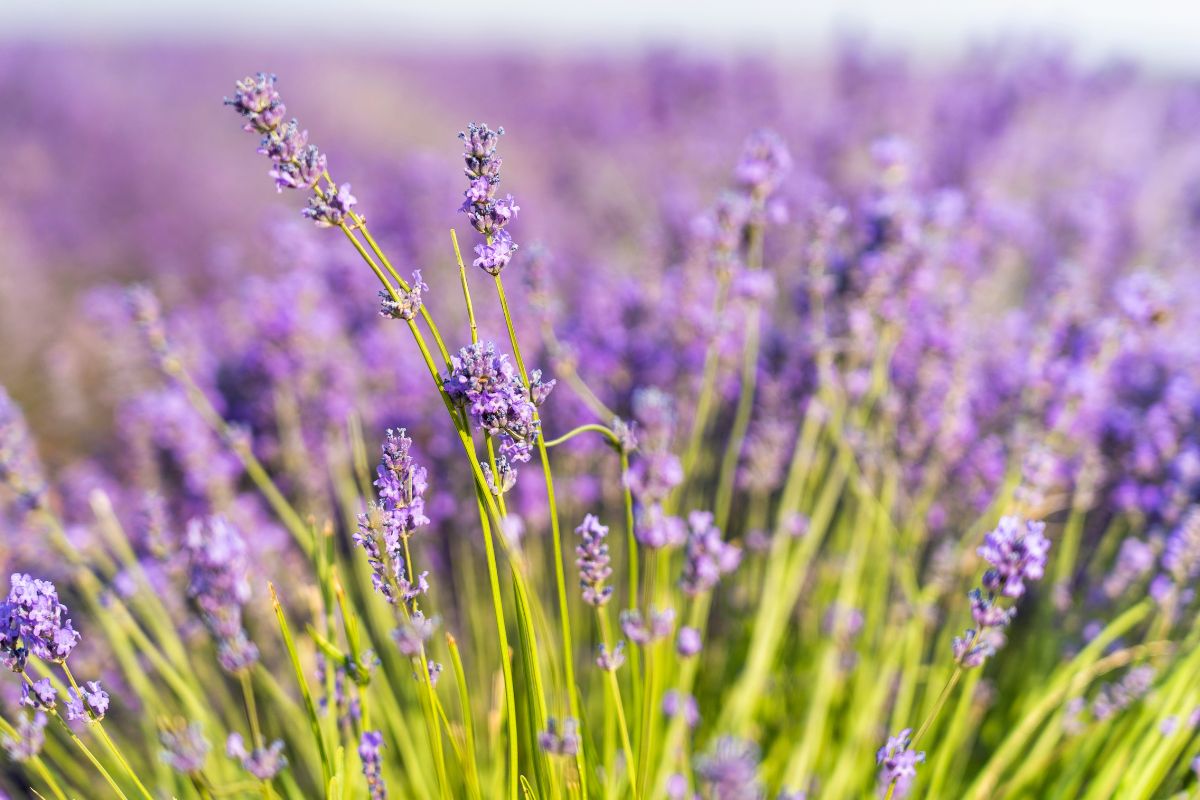What is Rosemary?
The Mediterranean region is home to the aromatic, evergreen plant known as rosemary or Salvia Rosmarinus. Some people like using a substitute for rosemary. Although its needle-like leaves have several uses, they are best famous for being a woody-tasting herb for cooking.
You cut the plant’s sprigs to obtain fresh rosemary. You then separate the rosemary sprigs from the stem, dry them, and dice the needles.

The Taste and Aroma
Rosemary is one of the herbs with the strongest fragrance, and because it has an adaptable flavor, you can use it in various preparations for different foods. It goes particularly well with foods that include meat, such as pig, poultry, or lamb.
On the other hand, it goes particularly well with lighter varieties of fish and is a fantastic addition to salads, potato dishes, and a wide variety of soups and stews. Moreover, it is a spice.
Since you may use it for a wide variety of things, it should be no surprise that it is one of the most widely used herbs.
But what exactly does it smell and taste like? Let’s describe it. In general, rosemary has a flavor that is reminiscent of mint, and this is because it is a member of the mint family of plants, which also includes basil and oregano.
Rosemary has a peppery and balsamic flavor and a bitter and woodsy aftertaste. It’s similar to sage. The rosemary flavor does not diminish when you cook it; thus, it preserves its potency throughout the process.
Because of this, it is very useful for making stews and soups. On the other hand, given that rosemary is both very aromatic and incredibly flavorful, it can readily dominate other herbs and flavors. Because of this, it is good that you incorporate it into your recipes in stages, making sure not to use only a little of it at a time.
There are also many different types of rosemary, each of which might have a flavor that is subtly different from the others. There are several varieties of rosemary, and you can experiment with them to find out which one complements a given dish the best.
What’s Rosemary Best for in Recipes
Since ancient times, people in Greece and Rome have utilized rosemary for both its flavor in food and its therapeutic properties. Rosemary, which belongs to the mint family, has an intense flavor you can use in various culinary preparations.
It is particularly popular for its ability to aid in preparing thick, heavy, and complex recipes since it adds freshness and helps relieve digestion. You may also use it in ice cream, salads, and seafood and drink it as tea.
Additionally, it is a wonderful complement to beverages such as cocktails and lemonades, and it rounds out the flavor of foods such as pasta and bread. You may always use the dried version, or you can choose another rosemary substitution if you still need to get the new version on hand.
Can You Substitute Fresh Rosemary for Dried?
The flavor offered by the fresh herb is superior and can also help to improve the dish’s appearance. Delicious roasted vegetables flavored with rosemary twigs and leaves, drizzled with olive oil, and seasoned with garlic. You need nothing else to achieve your dish’s wonderful flavor and appearance.
But if you’ve used up all of the fresh herbs, but you still want to savor the taste of rosemary, you may use dried rosemary as an excellent substitute for fresh rosemary. You should add dry herbs at the beginning or throughout the cooking process to get the flavor right. This allows the scents to develop after the plants have rehydrated, which is necessary for the procedure.
You will need to substitute one-fourth of a teaspoon of dried or minced rosemary for each teaspoon of fresh rosemary that is essential in the recipe to correct the proportions. When it comes to replacing it with another herb completely, the following are some helpful hints:
Other fresh herbs that can stand in for rosemary: The finest substitutes for rosemary are oregano, sage, mint, marjoram, and basil, all of which you should use in the same quantity as rosemary.
Use an equal amount of tarragon, thyme, bay leaf, dill, and savory in place of the dried rosemary in the recipe. You can substitute rosemary with fresh rosemary.
A List of Rosemary Substitutes
Have you been wondering what to substitute for rosemary? Thyme, oregano, and basil are your best options as substitutes for rosemary in general cuisine, followed by marjoram, savory, and tarragon. The dish you are cooking will, of course, determine the finest rosemary substitutions!
Basil
One of my favorite herbs to use in many dishes is basil, the third herb in the trio from the “Lamiaceae” family of herbs. Basil is a wonderful addition to your recipes because of its somewhat sweet yet savory flavor.
Use equal amounts of dry basil to replace dried thyme, and use equivalent amounts of fresh basil to replace fresh rosemary.

Italian Seasoning
What spice can you substitute for rosemary? In a pinch, Italian seasoning mixtures might take the place of rosemary. This herb mixture will have a deeper flavor, and you should only use it in dishes that don’t require a heavy seasoning of spices and herbs.
Use rosemary and Italian seasoning in a 2:1 ratio. Therefore, when a recipe calls for one tablespoon of rosemary, start by substituting 12 tbsp of Italian spice. From there, season to taste.
Marjoram
Another less common plant with a flavor similar to rosemary is marjoram. Marjoram’s delicate flavor, which is perfect with various types of meat, combines a somewhat sweet taste with a trace of bitterness. When replacing dried rosemary in a recipe, replace it with marjoram in a 1:1 ratio.
Oregano
As members of the same mint family as rosemary (listed above), oregano, basil, and thyme are among the best substitutes for the herb’s flavor. These three herbs are also among the easiest to grow and most widely distributed. Use equal amounts of dried oregano to replace dried thyme and equal volumes of fresh oregano to replace fresh rosemary.
Savory
Similar in flavor to rosemary, savory makes an excellent replacement. You can replace any recipe for rosemary with either fresh or dried savory. Savory’s only drawback is that it’s not a regularly used herb, so you might only sometimes have it on hand or be able to access it.
Tarragon
This lush green herb has a strong flavor, and you can use it as an alternative to rosemary. The distinctive flavor of tarragon, which some find to have a strong, overpowering taste, is a tinge of licorice or anise.
Compared to rosemary, use tarragon in lower amounts, especially if you are unsure of your family’s or guests’ preferences. When switching tarragon for rosemary, start with a 2:1 ratio. Use 1/2 tablespoon of tarragon for every tablespoon of rosemary.
Thyme
One of my top picks as the greatest all-around replacement for rosemary is thyme, despite having a milder flavor than rosemary. Thyme is incredibly flexible and widely available at most places, even though several herbs on this page are stronger and more flavor-wise similar to rosemary (in both fresh and dried varieties).
Use equal amounts of dried thyme to replace dried thyme and equal parts of fresh thyme to replace fresh rosemary.

Best Substances For Particular Dishes
While there are many generic alternatives to rosemary, some main ingredients may benefit from adding a more specialized herb or a blend of herbs to improve their taste.
Fish
Is parsley a good substitute for rosemary? While cooking fish, while cooking fish, you can use dill, parsley, or chives instead of rosemary. The different forms of fish meat, such as dark (oil-rich), white (firm and oil-rich), white (lean and strong), white (thin and flaky), and medium, all go exceptionally well with each of these herbs (oil-rich).
In place of the rosemary, when making fish dishes, use a 1:1 ratio of dill, parsley, or chives. Of course, you are free to add however much you like!
Beef
Sage is an excellent rosemary substitute for eggs and meat. You can use it in place of rosemary, and it pairs remarkably well with beef (and hog!). It has a flavor that is distinct yet similar.
You can substitute sage for rosemary, and the final flavor will be similar because both herbs have a pine-like taste. Sage has a robust flavor, so start with a small amount and add more as desired. You should use Sage in a 2:1 ratio or one component rosemary to two parts sage.
Mutton, Goat, and Lamb
Use a combination of bay leaf, peppermint, and thyme in place of rosemary when making a dish with lamb. To create a delicious flavor combination, combine the three ingredients in a 1:1 ratio.
Chicken, Turkey, and Poultry
Would you like to know the best rosemary substitute for chicken? Alternatives that go well with turkey, chicken, and other poultry include sage, thyme, or sage and thyme combined. You should reduce sage by half when you use it as a substitute for rosemary.
Sausage Dishes
Using caraway seeds instead of rosemary is an excellent substitute because sausage meals probably contain a variety of other spices. By doing this, you will add flavor without becoming overwhelming or overpowering the dish’s different tastes.
You can also use sage to season pork sausages. You will adore using sage in meals with beef and pig. Start with half the recommended amount of rosemary for both sage and caraway seeds. As needed, alter the flavor.
Pork
What is the best rosemary substitute for pork? There are many options, depending on whether you are out of rosemary or want to try something new. Some are fennel seed, thyme, apples, sage, chili, anise, and cinnamon.
Mushroom-Based Recipes
If you frequently prepare recipes heavy in mushrooms, think about swapping marjoram for rosemary. Try marjoram in place of rosemary in a 1:1 ratio, as it goes particularly well with mushrooms.
Additionally, chives, dill, parsley, a sprig of basil, oregano, and tarragon work very well with mushrooms (in addition to rosemary and marjoram). Combine a few of these herbs to spruce up your mushroom recipes.
Choose Your Rosemary Substitute According to Your Recipe
The rosemary’s aroma is piney, citrusy, minty, and earthy. Because its flavor is not affected by cooking and using too much of it can cause it to overshadow other fragrances, you should exercise extreme caution while using it.
Also, when it comes to switching out dry rosemary for fresh rosemary, make sure to follow the advice we gave you in our earlier paragraphs. And if there isn’t any such choice, you should keep reading!
What herbs can you use in place of rosemary in recipes? There are a great number of herbs that, when combined, provide a similar level of heat as this Mediterranean herb. Several different fragrant plants and spices give a vibe analogous to rosemary’s; however, it is best recognized for its ability to simultaneously warm and cool the taste buds.
The following are some of those that have a flavor or an appearance comparable to rosemary: The dried form of rosemary can serve as a suitable and effective substitute for the fresh herb. And even though it possesses a flavor and appearance, it is interchangeable with the herbs, spices, and condiments discussed earlier.
We have supplied some wonderful options for you to use as replacements in your cooking at the very last minute. What are you going to make now that you know how to make do without rosemary now that you’ve learned how to make do without rosemary when you run out? Perhaps you could tell us in the comments.
Nutritional Value
Rosemary is rich in several essential nutrients, including vitamin B-6, calcium, and iron. It has antioxidants, which have a role in preventing disease and slowing the aging process.
Health Benefits of Rosemary
You can only find this particular plant in the Mediterranean and the Middle East regions. It is most successful in warm climates but may survive in temperatures lower than ideal as long as they are above freezing.
Therefore, you might want to think about cultivating it in a container inside your residence. Having constant access to it confers a plethora of benefits in a variety of contexts. Rosemary:
- Stimulates the appetite
- Lowers blood pressure
- Protects against memory loss and improves concentration
- It eases aching muscles and alleviates mental exhaustion
- It helps the body’s immunological system.
- Promotes healthier blood flow in the body
- Stimulates the capillaries in the scalp, which results in increased hair growth
FAQs on Using Rosemary
Are Rosemary and Thyme the Same?
No! They are two distinct types of herbs. However, it is essential to note that the two do share some similarities, including the fact that they are both members of the mint family, you can dry and crush them into a powder, possess flavor profiles that are comparable to one another, and are usually in the section of grocery stores devoted to spices.
The fact that they are good with meat, beans, cabbage, poultry, stews, and soups is the only thing they have in common; the two are very different otherwise. Rosemary has a more robust flavor than thyme, pungent, bitter taste. Its leaves are more like needles than the small, soft, spherical leaves of thyme, and it grows taller and bushier than thyme, a low-growing herb.
Why are Rosemary and Thyme Used Together?
Rosemary and thyme are frequently combined in cooking because their aromas and flavors complement one another and because both rosemary and thyme thrive in the warm environment of the Mediterranean. The combination of the two has been in use for centuries. Combined, they take any recipe to a higher level and enhance it.
What Herbs Go With Rosemary?
Rosemary pairs well with a variety of other herbs. Herbes de Provence is a product of combining rosemary, thyme, marjoram, oregano, and savory in a single blend. Sage, basil, parsley, chives, garlic, bay leaves, cumin, nutmeg, star anise, and mint are other herbs and spices that go well with rosemary.
Can You Substitute Lavender for Rosemary?
The response to this question is yes. Both lavender and rosemary are excellent choices to use in place of one another as a substitute or alternative. On the other hand, given that rosemary is more potent, it is essential to adjust the quantity so that you use less of it than you would lavender.

Can I Use Italian Seasoning Instead of Rosemary?
The rosemary plant is the source of a well-known and often-used variety of herbs known as rosemary. It is rich in a variety of useful compounds, which greatly assist in enhancing digestion and the general circulation of blood throughout the body.
As for rosemary in the kitchen, it is most commonly and optimally suited for use in salads, casseroles, stews, and soups. Additionally, it goes particularly well with chicken, lamb, steak, and especially fish cooked in its oil.
As for Italian seasoning, it is essentially a mix of several ground herbs that all function well together in a complementary way. You can use it for season-specific meals and foods in a way that gives them a flavor reminiscent of classic Italian cuisine, hence the name of the spice.
There are numerous iterations of Italian seasoning, each of which can have a distinctively diverse combination of herbs. Oregano, basil, rosemary, thyme, sage, and coriander are some herbs and spices typically included in Italian seasoning. Garlic powder is also frequently included.
Now, let’s circle back around to the first question. Is it possible to substitute Italian seasoning for rosemary? Since rosemary is an ingredient in Italian seasoning, this is a solid indication that it would, at the very least, be complementary and function well with the same foods and meals.
It is possible to use Italian seasoning instead of rosemary; this is something you can do. Using it in the same proportion will add a slight difference in flavor that can make your dish more interesting. This is because it will come with the addition of the other complementary herbs, and you will know that they work together because they get blended as one.
Final Thoughts
Rosemary is a herb that grows wild in the stony and arid regions of the Mediterranean. Since ancient Romans and Greeks, the herb has been essential in preparing many dishes. In addition, it was a common practice among Greek intellectuals to put rosemary on their heads because of the widespread but unfounded belief that doing so would help improve their memory.
There are a lot of misconceptions concerning rosemary. For instance, people used to pose their departed loved ones holding rosemary sprigs at funerals because the plant represents recollection. For brides who wear the herb on their wedding day, it also means joy, love, and fidelity to the groom.
Rosemary is a common herb used as a seasoning in various types of food, including stuffing and roasted lamb, hog, chicken, and turkey. In the cuisine of the traditional Mediterranean region, you’ll frequently come across the utilization of fresh as well as dried leaves.
Use rosemary whenever a recipe calls for it, but if you don’t have any on hand, a wide variety of other herbs can use as a suitable substitute.

Community of passionate writers and content creators who share a love for Italian heritage, culture, travel, food, and the Italian-American community. Our mission is to celebrate Italy’s rich history and traditions and connect with others who share the same passion.

